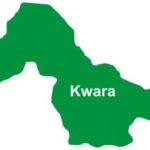Health is a human right, and every individual should have access to quality healthcare services. However, vulnerable populations such as women, children, the elderly and people living in poverty often face significant barriers to accessing healthcare. These barriers can include a lack of financial resources, limited availability of healthcare facilities, and inadequate healthcare services.
Therefore, strengthening health financing accountability is crucial in improving healthcare for vulnerable populations.
Health financing accountability involves ensuring that health resources are used effectively and efficiently to achieve the best possible health outcomes for the population. It is also important to understand that the framework can take many forms, including financial transparency, stakeholder engagement, and performance monitoring.
In this regard, Nigeria can learn from Rwanda. The country’s healthcare system is one of the most successful examples of health financing accountability in action. In 2000, the government implemented a community-based health insurance scheme to provide access to healthcare for all Rwandans. The programme is funded through a combination of government subsidies, contributions from individuals and employers, and external aid. The government also monitors the programme’s performance, ensuring that funds are used effectively and that the quality of care provided meets established standards.
Another country is Thailand. The country’s universal health coverage programme is a prime example of effective health financing accountability. The government established a national health insurance scheme in 2002 to provide access to healthcare services for all citizens. The programme is funded through taxes, and the government regularly evaluates the programme’s performance to ensure that funds are used efficiently and effectively. As a result, Thailand has achieved significant improvements in health outcomes, including a reduction in maternal and child mortality rates.
Brazil is also another excellent example. Brazil’s healthcare system includes a decentralised public healthcare system that is funded through a combination of taxes and social security contributions. The government has implemented various measures to improve health financing accountability, including a national health information system that tracks healthcare spending and performance indicators. Brazil has also established a participatory budgeting process that allows citizens to have a say in how healthcare resources are allocated.
Therefore, improving healthcare for vulnerable populations requires a strong commitment to health financing accountability. Countries like Rwanda, Thailand, and Brazil have successfully implemented such a framework, resulting in significant improvements in health outcomes.
Nigeria can learn from these examples and develop a comprehensive health financing accountability system that ensures that resources are used effectively and efficiently to improve access to quality healthcare services for all Nigerians, especially vulnerable populations. By doing so, Nigeria can achieve better health outcomes and fulfill its obligation to provide healthcare as a fundamental human right.
Baba Abdullahi Machina, Department of Political Science, University of Maiduguri
 Join Daily Trust WhatsApp Community For Quick Access To News and Happenings Around You.
Join Daily Trust WhatsApp Community For Quick Access To News and Happenings Around You.


